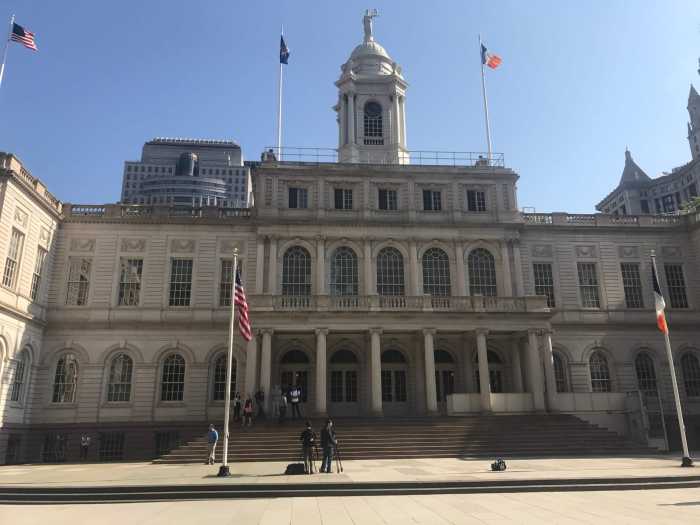California Supreme Court upholds Berkeley’s policy to insist on non-discrimination
The California Supreme Court has unanimously rejected constitutional claims on behalf of the Berkeley Sea Scouts, an affiliate of the Boy Scouts of America, over the loss of their free berthing privileges at the Berkeley Marina due to the group’s failure to adopt a non-discrimination policy on grounds of sexual orientation and religion. The March 9 opinion for the court was written by Justice Kathryn Mickle Werdegar.
Since the 1930s, when the Scouts allowed the city to use gravel from some BSA property to help build the marina, the Sea Scouts have had free berthing privileges for their boats by a vote of a grateful City Council. The Council resolution authorizing free berthing for the Scouts provided that the organization would have to comply with the marina’s rules.
In 1997, after other non-profit groups also requested free berthing privileges, the Council revised its rules in a new resolution adopting uniform practices. The resolution said that access to marina facilities may “not be predicated on a person’s race, color, religion, ethnicity, national origin, age, sex, sexual orientation, marital status, political affiliation, disability, or medical condition.”
In 1998, the Berkeley Waterfront Commission asked the Scouts about their policies. The local chapter claims that it has never and does not discriminate on any prohibited grounds, but its response equivocated, due to what it now says was “fear of losing their charter from the Boy Scouts,” essentially spelling out a “don’t ask don’t tell” policy toward sexual orientation.
This response was good enough for the Waterfront Commission, but not for the City Council, which voted to deny free berthing privileges to the Sea Scouts. The Sea Scouts have continued to use the Marina, but have been paying fees. The lawsuit is focused on the issue of the formerly free berthing privileges.
A group of Scouts and their parents filed suit, claiming breach of contract and constitutional violations. In essence, they argued that they were a non-discriminatory organization unfairly and unlawfully punished for their Boy Scout affiliation. They emphasized that the free berthing privileges had helped to keep dues low, making it possible to preserve the racial and ethnic diversity of their program.
The trial and intermediate appellate courts were unimpressed by these arguments, granting the city’s motion to dismiss the case. The California Supreme Court agreed.
Ironically, the Supreme Court’s opinion rested heavily on a controversial U.S. Supreme Court ruling from 1991, Rust v. Sullivan, in which that court rejected a constitutional challenge to a Reagan Administration regulation cutting off federal funding to any program in which abortion was provided or abortion counseling took place. The plaintiffs in that case had argued that as abortion was itself constitutionally protected, the federal government could not use its funding power to coerce eligible programs regarding their policy toward abortion.
The Berkeley Scouts plaintiffs made a similar argument. The California Supreme Court ruled in 1998 in Curran v. Mount Diablo Council of the Boy Scouts that the state’s public accommodations law did not apply to the Scouts’ membership policies, and the U.S. Supreme Court ruled in 2000 in Boy Scouts of America v. Dale that a state could not impose liability on the Scouts for their policies banning gay members. Thus, argued the Berkeley Scouts, even though they had no intention of discriminating against gays and atheists, such discrimination would be lawful under these rulings and the City Council could not deny them a government benefit based on a lawful policy.
The court was having none of this. It ruled that the city of Berkeley has a right to establish a non-discrimination policy for use of its marina and to limit any government subsidy in the form of free berthing to organizations willing and able to comply with that policy. As in Rust v. Sullivan, when the government is spending its money, it has a right to decide which programs it will direct the money to.
In some respects, this sounds like the U.S. Supreme Court’s ruling in the Solomon Amendment case, upholding the right of Congress to deny federal financial assistance to higher education institutions that exclude military recruiters, rejecting law schools’ argument that this places an unconstitutional condition on federal school funding.
Justice Werdegar specifically rejected the argument that Berkeley was trying to dictate the membership policies of the Scouts. “In terminating the Sea Scouts’ free berths because of the group’s failure fully and unambiguously to promise future non-discrimination,” she wrote, “Berkeley did not demand adherence to or renunciation of any idea or viewpoint. A government that requires aid recipients to conform their actions to its laws does not thereby enforce adherence to the philosophy or values behind those laws.”
Just as in the Solomon Amendment case, where the court distinguished between conduct (allowing military recruiters on campus) and speech (stating disapproval for the military’s policies), here the California court distinguished between the conduct of a non-discrimination policy and the speech of stating moral disapproval of atheists and gays. The Boy Scouts are free to state moral disapproval, but if they want to have free berths at the Berkeley Marina, they will need to have a policy that is not exclusionary.
gaycitynews.com


































